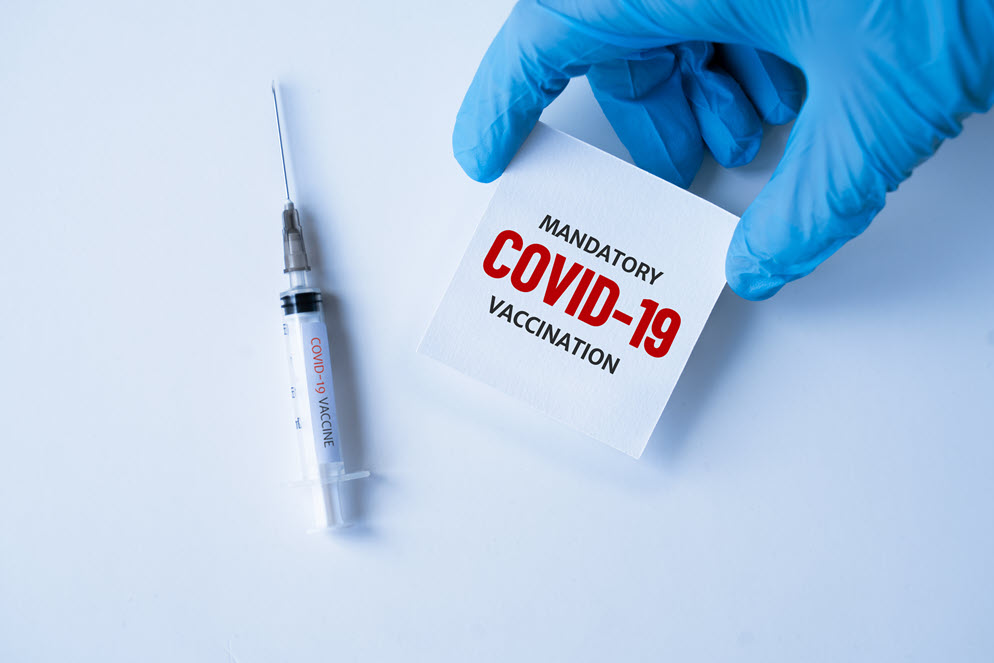Supreme Court Halts Implementation of OSHA Covid-19 “Vaccine Or Test” Rule
On January 13, the U.S. Supreme Court granted a request for emergency relief concerning a Covid-19 “vaccine or test” rule that the Occupational Safety and Health Administration (OSHA) was planning to implement. In granting the stay, the Court halted – for now – what was known as the Emergency Temporary Standard (ETS) to be imposed upon companies with 100 or more employees.
The ETS mandated employers with at least 100 employees to require all members of their workforce to either obtain a Covid-19 vaccination or provide weekly proof of a negative Covid-19 test.
It should be noted that the Supreme Court granted emergency relief, which is not a final review of the OSHA rule. In other words, the decision doesn’t necessarily mean the rule will not ultimately be implemented. To the contrary, the decision only stays, or puts on hold, implementation of the rule until the Sixth Circuit Court of Appeals reviews it. After that, it may come back up to the Supreme Court for further consideration.
The 6-3 decision held that the plaintiffs challenging the law were likely to succeed on the merits of their arguments. Plaintiffs argued, and the Court agreed, that OSHA lacks the authority to implement the ETS. The majority determined that while OSHA has power to impose workplace safety rules, it cannot set broad public health policies. Although Covid-19 affects many workplaces, it is not specifically an occupational danger. Allowing OSHA to impose such a rule, the majority decided, would permit the agency to regulate “the hazards of daily living” – something Congress never intended.
Meanwhile, in a separate concurring opinion (that is, an opinion agreeing with the majority but for a different reason), three Justices contended that OSHA violated what’s known as the major questions doctrine. This rule assumes that when an administrative agency, such as OSHA, promulgates a rule that has major economic and social consequences, there must be clear statutory authority to do so. Put another way, the assumption is that Congress would not intend for OSHA to have such broad power unless that power is expressly stated in a statute. Such power is not contained in any statute concerning OSHA.
The three dissenting Justices took a different view. Not only did they believe the challengers were not likely to prevail on the merits of their claim, they held that OSHA is within its authority to require such an emergency standard to prevent workplace illness. Citing the serious danger of Covid-19 to millions of employees, the Justices concluded that OSHA has the power to impose the ETS.
Again, this emergency ruling is not necessarily the final word. Because the issue has been returned to the Sixth Circuit, with another possible review by the Supreme Court, the original rule could be upheld or OSHA might, in light of this decision, devise a more limited rule.
Employers should also be aware that state and local rules may require policies similar to OSHA’s ETS. The Supreme Court decision does not negate or halt those requirements.
Considering all of these factors, employers are advised to consult with knowledgeable legal counsel both as to current Covid-19 requirements and to prepare for possible future policies. At Gaffney Lewis, LLC, we have your business covered. Our employment law attorneys are at the forefront of the latest legal developments that affect the workplace. We’re prepared to advise your company on the best way to comply with laws and regulations concerning Covid-19. Give us a call today to learn more.

SOUTH CAROLINA LAWYERS WHO WORK AS HARD AS YOU DO
DEFENDING YOUR BUSINESS IS OUR BUSINESS


